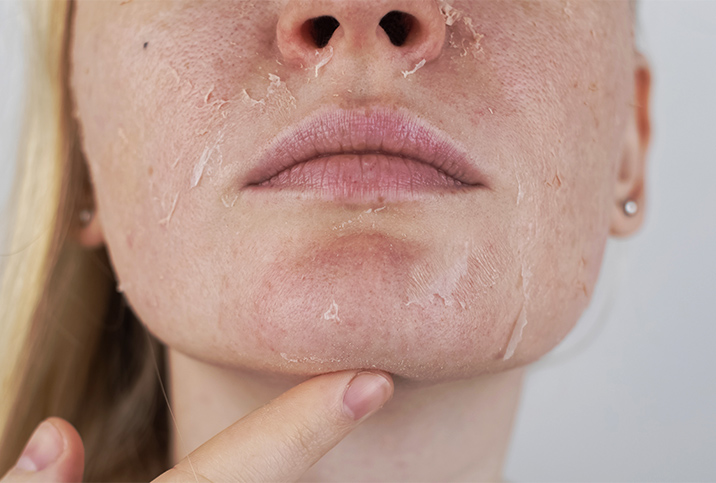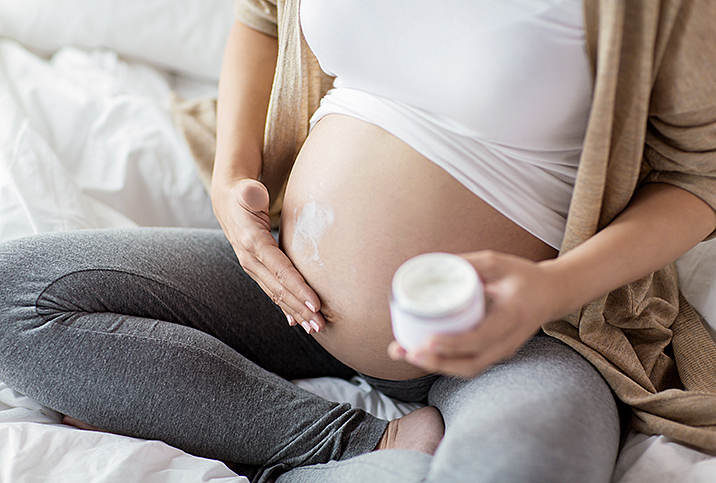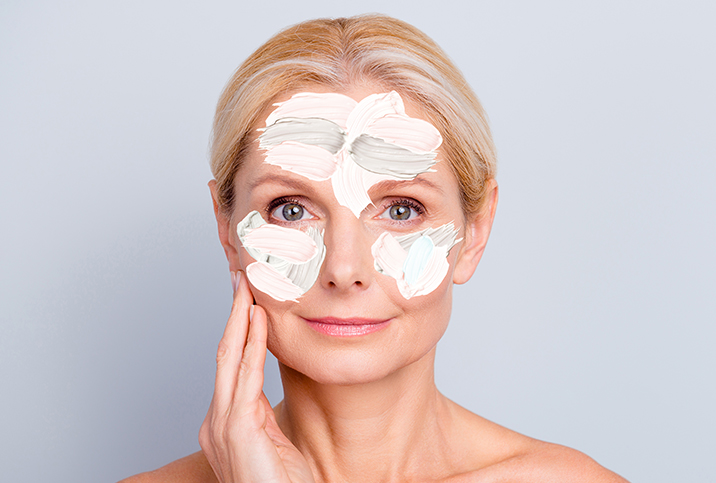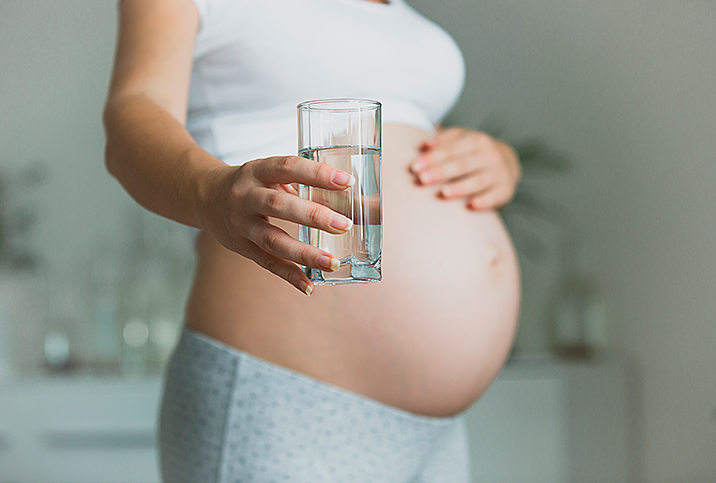Is Your Skin Peeling During Pregnancy?

Hormonal changes are responsible for many pregnancy symptoms, including nausea, vomiting, fatigue, mood swings and breast tenderness. What you might not expect to see during pregnancy are changes to your skin, but they're more common than you think.
A 2007 study of 607 pregnant women in India revealed that all study participants experienced physiological skin changes. The most common changes were pigmentary alterations and stretch marks, but other skin conditions, such as eczema, skin tags, rashes, acne and peeling, can also occur.
What causes skin peeling during pregnancy?
Peeling skin can be alarming, especially if it doesn't show signs of improving, but this is a very common symptom in pregnancy, according to Geeta Yadav, M.D., a dermatologist and the medical director and founder of Facet Dermatology in Toronto.
Management is often best with mild cleansers, robust moisturizers with ceramides, oatmeal soaks and, when appropriate, prescription-based topical corticosteroids'
"Hormonal changes and skin stretching can weaken the transepidermal skin barrier, which protects the skin against water loss," Yadav explained. "These changes during pregnancy can lead to dry or peeling skin around the stomach area, but you can also experience dry, itchy skin around the thighs, breasts and arms."
Your body uses vital nutrients as the baby develops, which is why it's recommended that you increase your water intake during pregnancy. Besides dry skin, some clear signs you are dehydrated include dizziness, fatigue and dark-colored urine. Experts recommend you drink eight to 12 cups of water every day to ensure you and your baby remain healthy throughout pregnancy.
If you are struggling to meet your daily target, ice pops and juices are a good addition to your diet. Just remember that juice should be 100 percent fruit juice and pasteurized to avoid sugar and harmful bacteria.
Skin changes throughout pregnancy
Hormonal fluctuations affect every part of your body, including the skin. They can trigger or worsen preexisting conditions, such as eczema and atopic dermatitis, said Beth Goldstein, M.D., a dermatologist and co-founder of Modern Ritual, a skincare company in Chapel Hill, North Carolina.
However, the rise in estrogen and progesterone impacts each person differently. While some women experience worsening symptoms, others find that their eczema improves or clears up during pregnancy. Any changes are likely to be temporary, so you should expect to see a return to your normal skin condition after birth.
In addition to effects on preexisting conditions, pregnancy-specific skin problems can occur. The most common one is pruritic urticarial papules and plaques of pregnancy (PUPPP), Yadav said. This is an itchy rash that often resembles pink spots all over the body, giving the appearance of hives.
PUPPP typically begins on stretch marks on the stomach, which can then spread to the thighs, buttocks and arms. It usually develops in the third trimester and often occurs during a first pregnancy. The itching can be troublesome and may keep you awake at night, so it's important to talk to your doctor about specific treatments.
When are skin problems a sign of something serious?
Some skin problems are completely normal and go away after birth, but you should seek an evaluation if you have any new or alarming symptoms. Goldstein explained that most rashes are believed to be caused by immune system changes associated with pregnancy, and some of these rashes can impact the health of the fetus and the mother, so it's important to get them checked out.
"Itching by itself without a rash can be a sign of underlying liver issues that can occur during pregnancy," Goldstein warned.
Cholestasis of pregnancy, a reduction or stoppage of bile flow from the liver, typically occurs in the third trimester. The only symptom you may have is severe itching, especially on your hands and feet. A simple blood test to check your bile acids can confirm this suspicion.
Another condition to look out for is Pemphigoid gestationis, a rare skin condition that leads to blisters on the abdomen or all over the body, Yadav said. It usually occurs in the second or third trimester and may cause itching, too.
While rare, these conditions need to be evaluated immediately so you can find appropriate treatment and ensure a safe pregnancy.
Treating skin issues
"Management is often best with mild cleansers, robust moisturizers with ceramides, oatmeal soaks and, when appropriate, prescription-based topical corticosteroids," Goldstein advised. "In severe cases, oral steroids may be indicated as well."
When dealing with dry, peeling, flaky or itchy skin, moisturization is very important in skin management.
"At night, I recommend reaching for a thicker, occlusive moisturizer to really nourish the area while you're sleeping," Yadav said, adding that you should avoid hot showers and stick to cooler temperatures to prevent your skin from losing its moisture and drying out.
For rashes, blisters and severe itching, treatment depends on the cause. Cholestasis of pregnancy is often treated with a prescription drug to improve bile acid levels, while Pemphigoid gestationis may be treated with antihistamines or ointment.
Preventing skin issues during pregnancy
While it's normal to worry about new and unexpected symptoms, Goldstein said there is no way to prevent skin peeling during pregnancy, so you should rest assured that you are doing all that you can do. In some cases, skin conditions flare up with additional pregnancies, while for other women, this won't happen as no two pregnancies are the same.
Remember, if you ever have any questions or concerns about changes or dy or peeling skin during pregnancy, talk to your doctor so they can evaluate you and find the best solution for what you're experiencing.


















